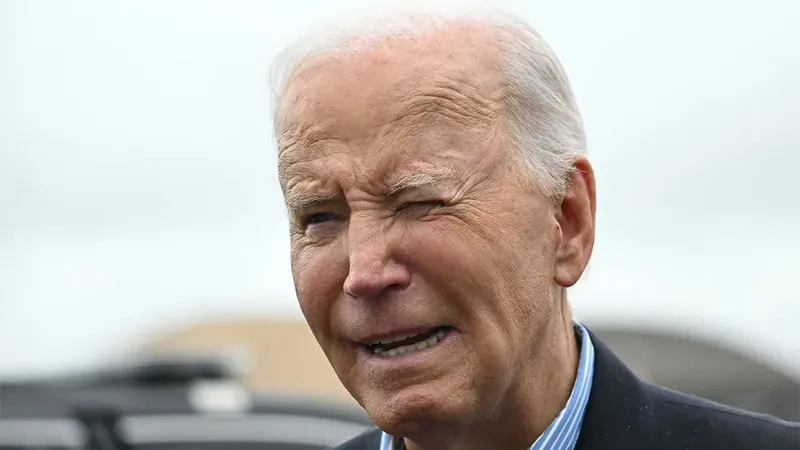
Biden Reiterates Opposition to Israeli Strikes on Iran, Calls for Proportional Response Amid Rising Tensions
2024-10-03
Introduction
In a significant development on Wednesday, President Joe Biden declared he would not support any Israeli military strikes on Iranian nuclear facilities, amidst escalating tensions in the Middle East following Iran's recent missile attack on Israel. The announcement raises crucial questions about U.S. foreign policy in the region and the future of Israeli-Iranian relations.
Biden's Statement After Missile Attacks
This statement came directly after Iranian forces fired 181 missiles at Israel, an aggressive move that understandably rattled the region and signaled a potential for severe conflict. Biden, speaking briefly with reporters before departing on Air Force One, emphasized the need for a measured approach. "All leaders on a recent call, including France, Canada, Japan, Britain, Italy, and Germany, agreed that Israel has the right to respond, but the response should be proportional," he stated.
Commitment to De-escalation
When pressed about the possibility of supporting Israeli strikes on Iranian nuclear sites, Biden unequivocally answered, “The answer is no.” His firm stance reflects an ongoing commitment to de-escalation in what many fear could turn into an all-out regional conflict.
U.S. Sanctions and Diplomatic Solutions
In the aftermath of Iran's missile offensive, Biden indicated that the U.S. would impose further sanctions on Iran, signaling a push for diplomatic solutions as tensions remain high. “Obviously, Iran is way off course,” he remarked, indicating dissatisfaction with Tehran's recent actions which have disrupted the delicate balance of peace in the region.
Challenges to a Long-lasting Ceasefire
As diplomatic efforts face mounting challenges, the Biden administration has been navigating a complex landscape, particularly in the context of the near year-long conflict between Israel and Hamas. National Security Council spokesperson John Kirby admitted to difficulties in pursuing a long-lasting ceasefire: “We aren’t any closer to that now than we were even a week ago,” he said, emphasizing the daunting nature of reaching an agreement.
Complications from Recent Conflicts
The latest Israeli missile strikes on Hezbollah targets in Lebanon further complicate the situation, as Israel moves to counter perceived threats from its northern neighbor. Hezbollah has warned Iran that it would act independently should the situation escalate further, intensifying fears of a broader conflict engulfing the region.
Domestic Political Perspectives
Meanwhile, domestic political debates continue to shape perspectives on U.S. foreign policy in the Middle East. During a recent vice presidential debate, Minnesota Governor Tim Walz praised Vice President Kamala Harris for her steady leadership amid global unrest. He asserted the importance of maintaining strong alliances and collective security.
In contrast, Ohio Republican Senator JD Vance promoted a return to former President Trump’s “peace through strength” approach, advocating for a robust U.S. presence to deter aggression in the region. Vance emphasized that it is ultimately up to Israel to decide how best to secure itself against threats.
Conclusion
As the situation unfolds, the Biden administration will be closely monitoring developments, balancing international diplomacy with the security concerns of U.S. allies in a highly volatile area.



 Brasil (PT)
Brasil (PT)
 Canada (EN)
Canada (EN)
 Chile (ES)
Chile (ES)
 España (ES)
España (ES)
 France (FR)
France (FR)
 Hong Kong (EN)
Hong Kong (EN)
 Italia (IT)
Italia (IT)
 日本 (JA)
日本 (JA)
 Magyarország (HU)
Magyarország (HU)
 Norge (NO)
Norge (NO)
 Polska (PL)
Polska (PL)
 Schweiz (DE)
Schweiz (DE)
 Singapore (EN)
Singapore (EN)
 Sverige (SV)
Sverige (SV)
 Suomi (FI)
Suomi (FI)
 Türkiye (TR)
Türkiye (TR)